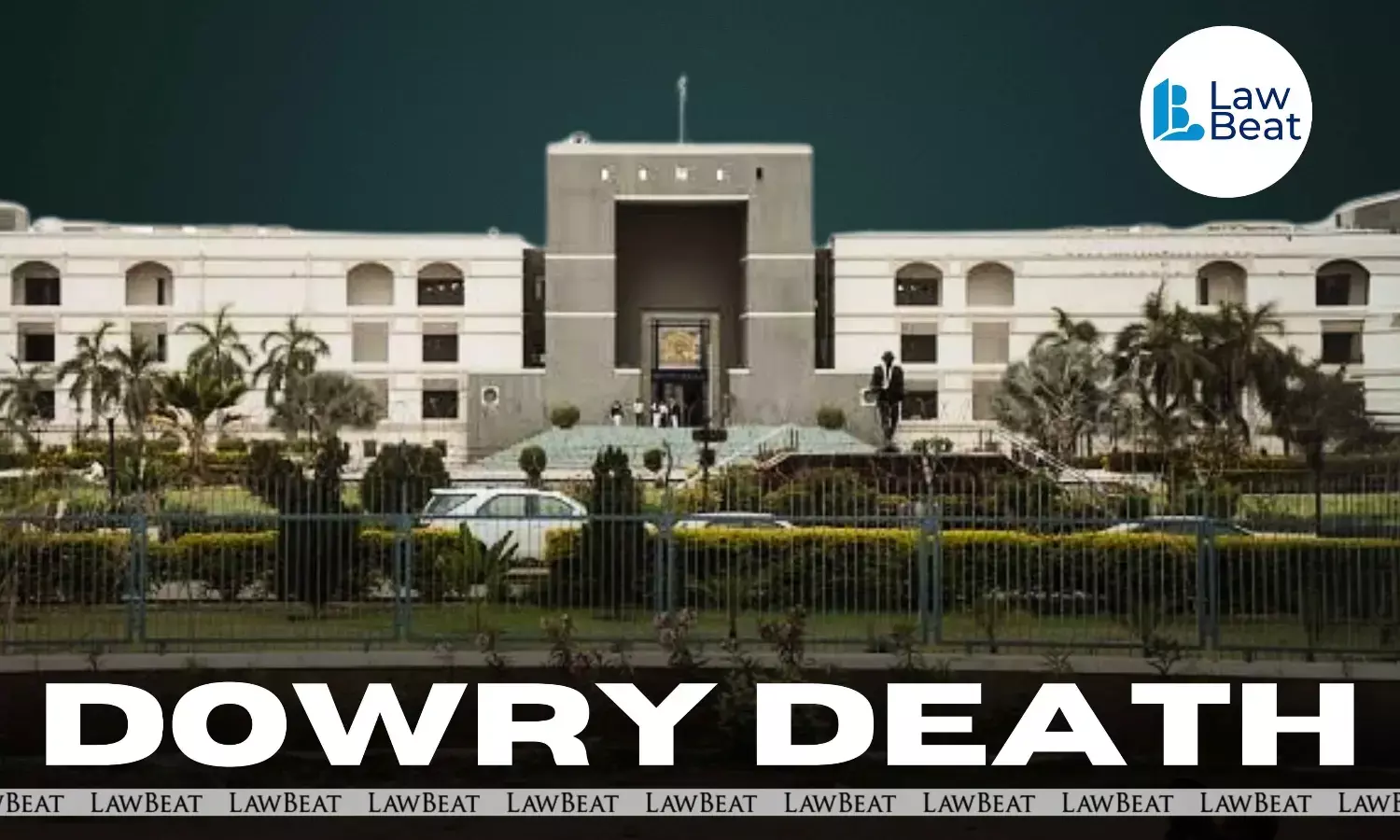Asking Daughter-in-Law for Bail Money Isn’t Dowry Harassment: Gujarat HC

The Gujarat High Court recently upheld the acquittal of four members of a family who were accused of abetting the suicide of their daughter-in-law, stating that there was no credible medical or legal evidence to establish charges of dowry harassment or suicide.
Court was hearing a criminal appeal filed by the State of Gujarat challenging the 2013 acquittal of the woman’s father-in-law, mother-in-law, sister-in-law, and brother-in-law by an Amreli sessions court. The accused had been charged under Sections 304B (dowry death), 306 (abetment of suicide), 498A (cruelty), and 114 of the Indian Penal Code.
The deceased, married in January 2011, allegedly consumed poison and died in August of the same year, after allegedly being harassed for a sum of Rs. 50,000. According to the prosecution, the money was demanded by the in-laws to pay for legal expenses after the husband and others were arrested in a land fraud case. The woman’s father arranged Rs. 10,000, but it was alleged that the in-laws continued pressuring her for the remaining amount, leading her to take her own life.
However, the bench of Justice Cheekati Manavendranath Roy and Justice D.M. Vyas found several gaps in the prosecution’s case. Court noted that while the postmortem had initially mentioned cardio-respiratory failure as the cause of death, there was no conclusive chemical analysis confirming poisoning. The doctor who conducted the autopsy admitted in court that without viscera analysis, he could not definitively say poison was the cause of death.
Further, court emphasized that a key requirement under Section 304B IPC is that the alleged harassment or demand must qualify as “dowry” under the Dowry Prohibition Act. The division bench held that the demand for money to pay legal fees for securing bail did not constitute a dowry demand as defined under the law.
"Strictly speaking, in our considered view, it does not come within the meaning of 'dowry', as defined under Section 2 of the Dowry Prohibition Act, 1961 for the purpose of proving a case under Section 304(B) of IPC," the bench said.
Further weakening the prosecution’s case, the accused had submitted bank statements during their Section 313 examination showing a healthy balance of Rs. 2-3 lakh, enough to cover legal expenses, raising doubts about the motive for demanding money from the deceased’s family.
Moreover, court held that even Section 306, IPC was not attracted in the present case. "It is not at all case of the prosecution that any of the accused herein has instigated her (the daughter-in-law), directly or indirectly, or aided her in any other way to commit suicide," the bench pointed out.
Therefore, stating that the prosecution failed to prove that the deceased consumed poison and died, the high court held that the accused were entitled to benefit of doubt.
Dismissing the appeal, the court reaffirmed the trial court’s findings.
Case Title: State of Gujarat vs Natubhai Golanbhai Khuman and Ors
